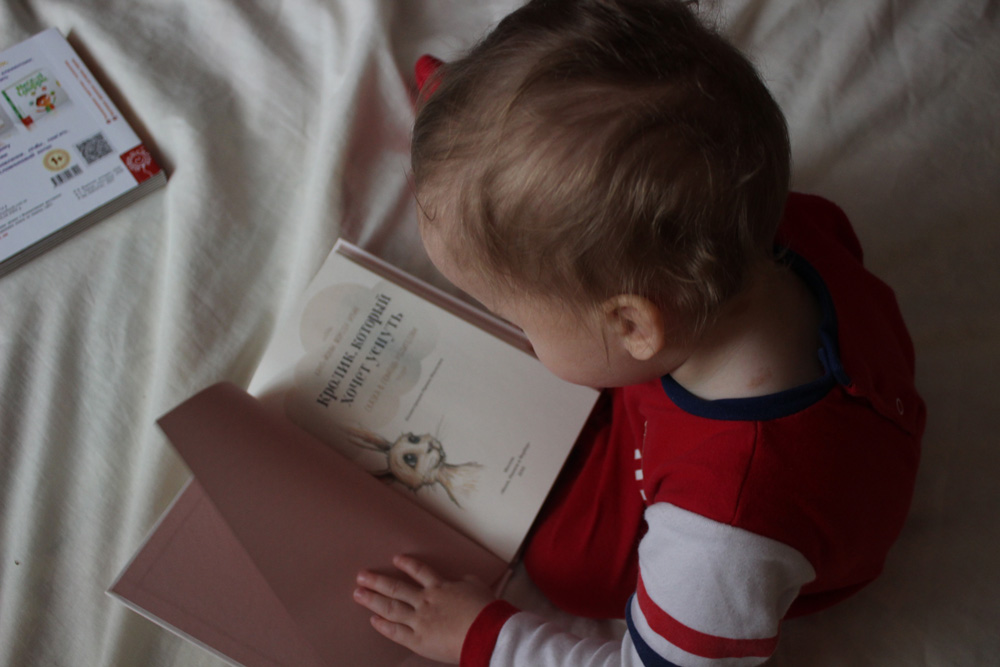The Importance of Word Decoding in Reading
Have you ever tried to sound out an unfamiliar word? Next time you do it, think about how you're using a skill set you learned as a child in preschool, if not even earlier! Working your way through unfamiliar words is actually called "word decoding," and it's an essential skill for fluent reading.
What Is Word Decoding?
Word decoding is a foundational reading skill that teaches children the relationship between individual letters or letter combinations and spoken words. Basic decoding skills are essential for students learning to read, since memorizing letter patterns and their sounds allows students to eventually focus on higher-level literacy skills, like comprehension and writing.

Word decoding, along with phonics and phonemic awareness, is a key skill that is foundational to phonological awareness. Phonological skills help children to comprehend that words are made up of sounds (phonemes) which are represented by different letters.
Word Decoding Skills
There are different skills involved in word decoding:
- Alphabet knowledge is the first building block of literacy in the English language. Once students know individual letters and the sounds of letters, they can move on to more advanced concepts.
- Phonemic and phonological skills help students with word decoding since these skills give children the ability to recognize how different sounds make up words.
- Learning to sound out and blend letters and phonemes prepares children for independent reading. In order to be successful, they must be able to isolate phonemes from complex words.
Word Decoding and Phonics
Another essential reading skill for children learning to decode words is phonics. Phonics teaches children how combinations of letters, like "sh" or "ck," fit together to make different sounds.
Instruction in phonics also helps children learn to navigate hard words that don't follow phonics rules, which is why a classroom teacher will also teach exceptions to phonics rules. In the English language, there are some words that can't be decoded,
like the words "cough" or "the." However, as students learn to decode simpler words, they will come to recognize the peculiarities of others.
Signs of Difficulty With Word Decoding
Some children, such as children with a learning disability like dyslexia or first-time English language learners, may struggle to understand word decoding. Keep an eye out for these indicators that a child is struggling with word decoding:
- They frequently try to guess longer words based on the first couple of letters
- They guess words based on the pictures instead of trying to work through the letters
- They read very slowly
- They don't understand the meaning of the sentence because it took them so long to get through each individual word
Children struggling to learn decoding may require explicit instruction in decoding or other phonological skills.

How Can Parents Help Boost Word Decoding Skills?
Not all learning happens in the classroom. Games and activities that target phonological and phonemic awareness skills are great for boosting word decoding abilities at home, too! Here are a few simple ones to try:
- I Spy: Pick a letter (or a sound!) and have your child identify objects in the room that start with that letter or sound. For example, say, "I spy with my little eye, something that starts with.../t/!" (Note: Letters within "/" marks denote the phoneme sound, not the actual letter). Answers could be "table," "toy," "television," etc.
- Sound It Out: Grab some alphabet blocks or some magnetic letters. Spell out a simple word with the magnetic letters or blocks, like the word "cat." After sounding out the first word with your child, replace a letter in the word, changing it to "bat," "cut," or "cap," for example. See if your child can sound out the new word.
- Encourage Writing: The best way to practice word decoding and learn the basics of letter sounds is to read and write. Encourage your child to write letters or write descriptions on pictures to help them practice their decoding.
- Read Together: Instead of reading to your child, try a daily reading practice in which they to read to you! It's hard, but try to let them sound out words that they don't understand—don't jump in and help right away! Your child feels more comfortable with you than anyone; by creating a safe space for them to try to sound out words, you'll help build their confidence.

How Can Teachers Help At School?
It's not easy to teach complex topics to young children. Try using a multisensory approach with fun learning activities to make learning feel like a game instead of a chore. Here are a few activity examples for teachers struggling to help their students learn word decoding:
- Pool Noodle Blending: Cut up a pool noodle into round coins, and slide them together onto a bar. Write either a letter or a phoneme on each noodle segment. Start by spacing the noodles apart and having the students sound out each letter or phoneme individually. Slowly move them closer together and have the students say the sounds closer together as you do. This activity helps students learn about blending and segmenting letters or phonemes.
- Draw Words: As new words are introduced, ask students to write them while creating an image around the word. For example, drawing an airplane around the word "fly" or a cookie out of the word "eat." Adding a component of imagery to the activity will help your students remember spelling and word patterns better.
- Musical Syllables: Give each student a small musical instrument, like a shaker or drumstick, and have them tap out each syllable as you read different words. Learning about syllables helps students break up longer works into more manageable bites.

Voyager Sopris Can Help Teach Word Decoding To Struggling Students
Here at Voyager Sopris Learning®, we understand that reading and writing are the building blocks of all learning. Reading proficiency translates across all subject areas and helps develop engaged, successful students.
The journey to literacy requires essential tools to ensure students who struggle can reach grade level. Voyager Passport® is a K–5 literacy intervention that provides comprehensive, explicit, and systemic instruction in the five essential components of reading and includes language and writing—in just 30 minutes of instruction per day.
See for yourself why we believe literacy is possible with a sample of Voyager Passport.


